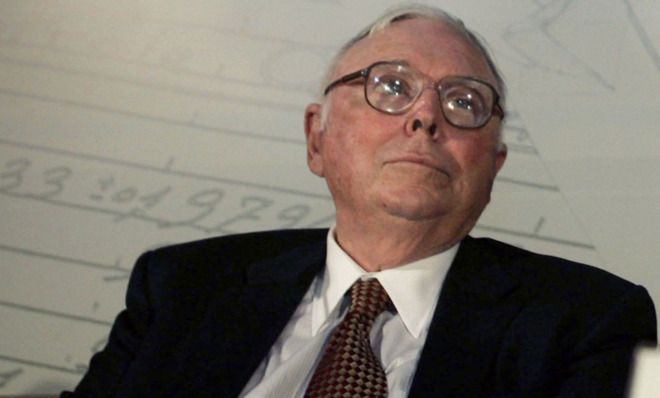Inversion and the power of avoiding stupidity
True fact: Avoiding stupidity is easier than seeking brilliance


Charlie Munger, the business partner of Warren Buffett and vice chairman at Berkshire Hathaway, is famous for saying, "All I want to know is where I'm going to die, so I'll never go there." That thinking was inspired by Carl Gustav Jacob Jacobi, the German mathematician famous for some work on elliptic functions that I'll never understand, who advised, "Man muss immer umkehren" (or loosely translated, "Invert, always invert.")
"(Jacobi) knew that it is in the nature of things that many hard problems are best solved when they are addressed backward," Munger counsels.
While Jacobi applied this mostly to mathematics, the model is one of the most powerful thinking habits we need in our toolkit.
Subscribe to The Week
Escape your echo chamber. Get the facts behind the news, plus analysis from multiple perspectives.

Sign up for The Week's Free Newsletters
From our morning news briefing to a weekly Good News Newsletter, get the best of The Week delivered directly to your inbox.
From our morning news briefing to a weekly Good News Newsletter, get the best of The Week delivered directly to your inbox.
It is not enough to think about difficult problems one way. You need to think about them forwards and backwards. "Indeed," says Munger, "many problems can't be solved forward."
Let's take a look at some examples.
Say you want to create more innovation at your organization. Thinking forward, you'd think about all of the things you could do to foster innovation. If you look at the problem backwards, you'd think about all the things you could do to create less innovation. Ideally, you'd avoid those things. Sounds simple right? I bet your organization does some of those "stupid" things today.
Another example: Rather than think about what makes a good life, you can think about what prescriptions would ensure misery.
Sign up for Today's Best Articles in your inbox
A free daily email with the biggest news stories of the day – and the best features from TheWeek.com
While both thinking forward and thinking backwards result in some action, you can think of them as additive vs. subtractive. And the difference is meaningful. Despite the best intentions, thinking forward increases the odds that you'll cause harm (iatrogenics). Thinking backwards, call it subtractive avoidance, is less likely to cause harm.
Inverting the problem won't always solve it, but it will help you avoid trouble. Call it the avoiding stupidity filter.
So what does this mean in practice?
Spend less time trying to be brilliant and more time trying to avoid obvious stupidity. The kicker? Avoiding stupidity is easier than seeking brilliance.
More from Farnam Street...
Shane Parrish is a Canadian writer, blogger, and coffee lover living in Ottawa, Ontario. He is known for his blog, Farnam Street, which features writing on decision making, culture, and other subjects.


